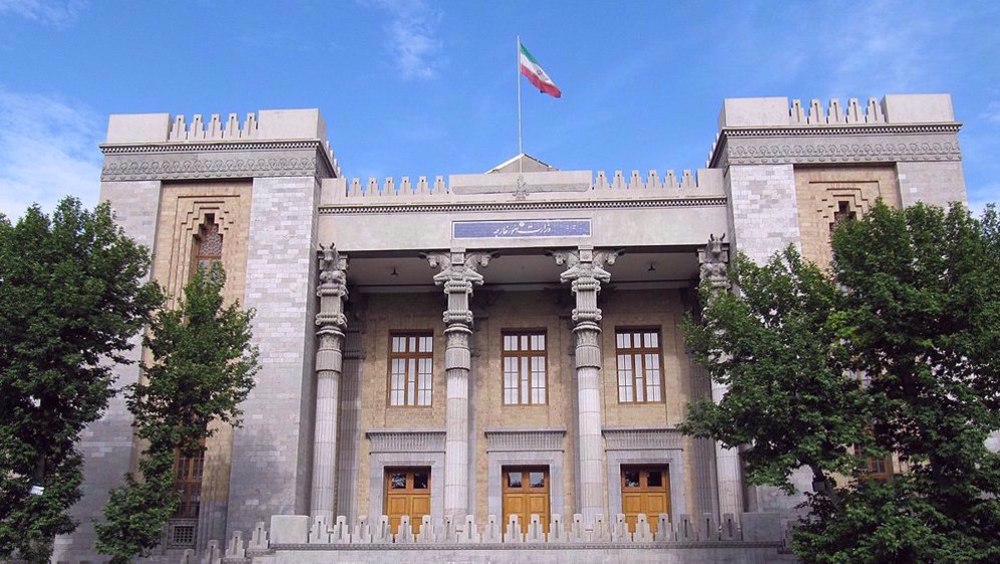The Iranian Foreign Ministry has announced that the Islamic Republic, as of October 18, will no longer be subject to any restriction with regard to its ballistic missile-related activities and transfers by the United Nations Security Council.
The Ministry said in a statement on Wednesday that the entire restrictions imposed on the Islamic Republic’s ballistic missile-related activities and its associated services and technology have “unconditionally” ended.
The termination came into force on October 18, eight years after the 2015 Iran nuclear deal with major world powers, officially known as the Joint Comprehensive Plan of Action (JCPOA).
“As of today, 18 October 2023, the last part of unjustly imposed restrictions by the United Nations Security Council on missile-related activities and its associated services and technology to/from Islamic Republic of Iran, including asset freeze and financial restrictions on certain Iranian individuals and entities, terminated unconditionally,” the statement said.
“According to the provisions of 2231 UNSC Resolution, termination of these restrictions, does not require any resolution, statement or any other action in the context of the UNSC and occurred automatically,” it added.
The Iranian Foreign Ministry also said cooperation in all military and defense areas would be carried out, without any restriction, based on the needs and discretion of the Islamic Republic of Iran, within the framework of bilateral contracts with other countries.
Pointing to the provisions of UNSCR 2231, the statement noted, “In accordance with paragraph 3 of Annex B, Iran is no longer ‘called upon’ by the Security Council ‘not to undertake any activity related to ballistic missiles.”
The Foreign Ministry said the Islamic Republic, by recalling the provisions of the UN charter, in particular article 25 as well as provisions of UNSCR 2231, emphasizes the commitments of all member states to effectuate the termination of the above-mentioned restrictions at the national level.
“Iran expects all States to modify and revise, in the case of existence, any relevant restriction or sanction, according to their domestic legal system,” it added.
All national or regional restrictive measures/sanctions imposed against Iran on the basis of UNSCR 2231 shall be terminated accordingly. Maintaining such measures or imposing new ones clearly violate letter and spirit of UNSCR 2231.
— علی باقریکنی (@Bagheri_Kani) October 18, 2023
The statement underlined that any measure, at the national or regional level, aiming at imposing sanctions or restrictions on defensive engagements and cooperation of the Islamic Republic of Iran, is in contradiction with the termination of restrictions of UNSCR 2231, and that Tehran reserves its right to take appropriate measures to secure its national interests.
“The defense doctrine of the Islamic Republic of Iran has always been on the basis of domestic capabilities and capacities, and deeply rooted in resistance and power of Iranian Nation. Unconventional arms and weapons of mass destruction has no place in the defense doctrine of the Islamic Republic of Iran,” the statement said.
“Moreover, the Islamic Republic of Iran will continue to take necessary measures to strengthen its defense capabilities in order to protect its sovereignty, independence, and territorial integrity against any aggression and to counter the menace of terrorism in the region,” it added.
Stressing that the Iranian military capabilities, including ballistic missiles, are exclusively for self-defense, the statement said, “The Islamic Republic of Iran continues to insist that all sanctions and restrictive measures introduced and applied against Iran, including those imposed under the pretext of its nuclear program, have been baseless, unjust and unlawful.”
Last month, the three European signatories to the JCPOA — the UK, Germany, and France — said they plan not to terminate their anti-Iran sanctions, including ballistic missile bans, arguing that Iran has been in non-compliance with the deal since 2019.
Iran halted some of its JCPOA commitments in 2019, a year after the US unilaterally walked out of the deal and after the EU failed to offer any compensation for the US withdrawal.
Iran said at the time the reduction of its commitments was in accordance with the deal, which allows parties to dishonor commitments should other parties do the same.




